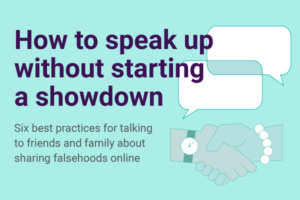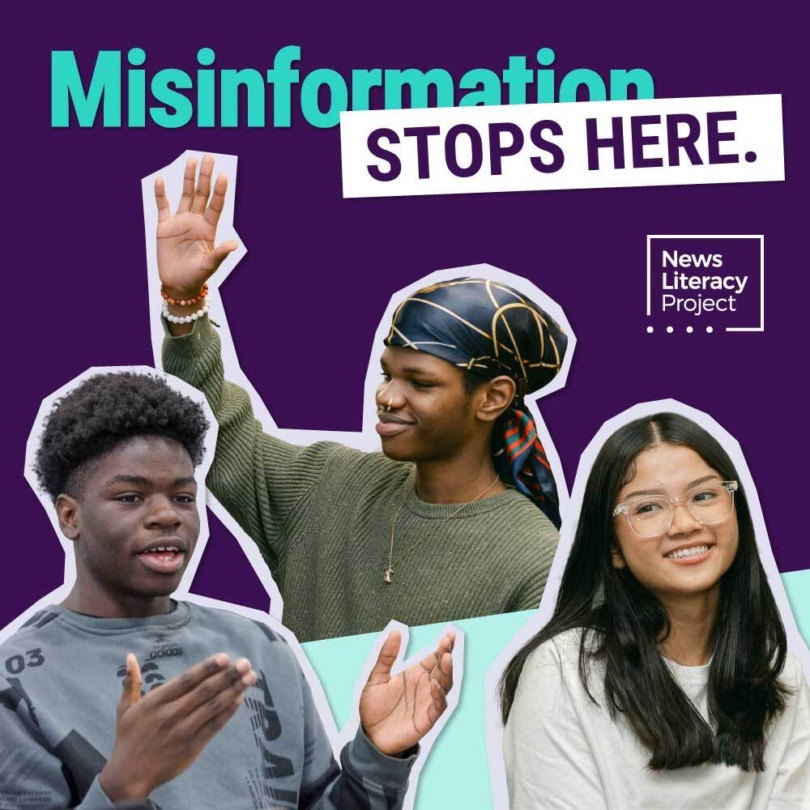How to speak up without starting a showdown
 Misinformation is always problematic, but when it appears alongside pet photos and family updates on social media, it can be especially frustrating and unwelcome. It’s one thing if a stranger spreads falsehoods online. But what should we do when we see misinformation shared by family and friends?
Misinformation is always problematic, but when it appears alongside pet photos and family updates on social media, it can be especially frustrating and unwelcome. It’s one thing if a stranger spreads falsehoods online. But what should we do when we see misinformation shared by family and friends?
Stepping into the role of fact-checker when it comes to loved ones can be tricky and stir strong emotions, so it’s worth preparing for — especially as more falsehoods seep across social media and into family and friend group chats.
While every scenario is different, following some general best practices can help keep the conversation civil and make the interaction worthwhile. Use these six tips — with some helpful phrases for getting started — as a guide on how to speak up without starting a showdown. It may not be easy, but talking to loved ones about false or misleading content can help them think twice about what to share in the future.
Get smart about COVID-19
Each of us needs to play a role in combating misinformation about the ongoing COVID-19 pandemic. When the outbreak hit the U.S. in spring, NLP created resources to provide the public, educators and students with accurate information about the illness.
We also created a quiz to test whether you can sort fact from fiction related to COVID-19 information. The World Health Organization called this deluge of information and misinformation about the pandemic an “infodemic’ for good reason.
Test your knowledge
The quiz embedded below will test your ability to accurately categorize information using a compilation of examples pulled from several sources. You will see news clips, social media posts, images, video, and charts and graphics. Then you must determine whether the content is opinion or news, is supported by valid evidence or whether the source cited is reliable.
If you have been paying attention to news about the pandemic these many months, you might find that some of the examples are easy. Yet others just might trip you up. Remember, this virus poses an ongoing and serious public health challenge. Since it appears COVID-19 will be with us for a while, it’s important to keep your skills sharp when it comes to determining what to trust, share or act on.
Your health and the health of your friends and family might just depend on it.
